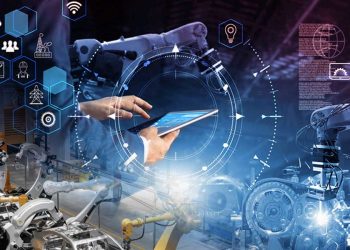IoT in Healthcare
It is estimated that by the end of 2020 there will be more than 23 billion connected devices, with that number set to increase to more than 75 billion by the end of 2025 in the healthcare sector. One can say that internet-of-things (IoT) are about to take over the healthcare industry and with each passing minute there is more happening which is engulfing the healthcare arena at an unprecedented rate.
Some of the most significant changes made by IoT that can enhance the healthcare arena for good are:
- Training purpose:
With the advent of IoT, one can certainly say that today the medical practitioners along with nurses, and medical students have become well equipped with enhanced healthcare training devices. These devices are making caregiving easier by offering real-time feedback and giving hands-on patient symptoms. The superiority and extensive availability of these devices are making it easier to instruct and educate new medical practitioners covering vast distances, and enabling a self-guided module to give them a clearer picture of the medical nitty-gritty.
- Enabling remote patient monitoring systems:
Incorporating IoT in the healthcare arena is also going to revolutionize and develop remote patient monitoring. It is going to become helpful for those patients who have medical devices to administer. For instance, IoT will enable monitoring your blood sugar or blood pressure levels easier on a regular basis and this information will also be automatically be stored in the cloud which can be accessed by medical practitioners when need be in case of emergency hospital admittance. These coupled devices will also inform your healthcare provider of any abnormalities that you may be facing for them to intervene in the nick of time and assist you with the correct medication when required.
- Pre-emptive care:
One thing that humans neglect is regular health check-ups which can help them in determining their conditions physically or mentally. IoT can make these check-ups easier as these devices could proactively monitor your vitals and alert you in case you need care in an area which has not been checked-up for a long time. This is also going to culminate into the least expensive and most effective way to get healthcare is gradual, during the times when you don’t think you need it.
- Workflow intensification:
Healthcare arena is looking forward towards IoT to control workflow optimization. The care providers and medical professionals through the assistance of RFID devices be it bracelets or notification phones will be able to know where to be at that exact moment. IoT can enable a centralized system which can divide the workforce into the areas they are most needed in and the patients in an emergency who need a doctor or nurse.
- Inventory management:
Through IoT, the hospitals or care centers will be able to keep a check on their controlled medications, medicine stock and also types of equipment. IoT can give the caregivers alert if these substances are being used for wrongful purposes or to the incorrect patient. A lot of catastrophes can be avoided if these devices are placed and monitored correctly.
- Issues Healthcare arena faces:
Most of these applications are prototypes and have not yet been introduced in the medical arena. There are numerous reasons stopping healthcare industry from implementing these devices which includes cost as these technologically advanced devices are priced at higher rates. There are also reasons like slow adoption rate as healthcare facilities fear they may spend more on underutilized products. Another big concern is security as their maybe instances where data is misused or stolen. However, if the healthcare arena adopts IoT, they will see a wave of change that can take the care industry to new heights.








